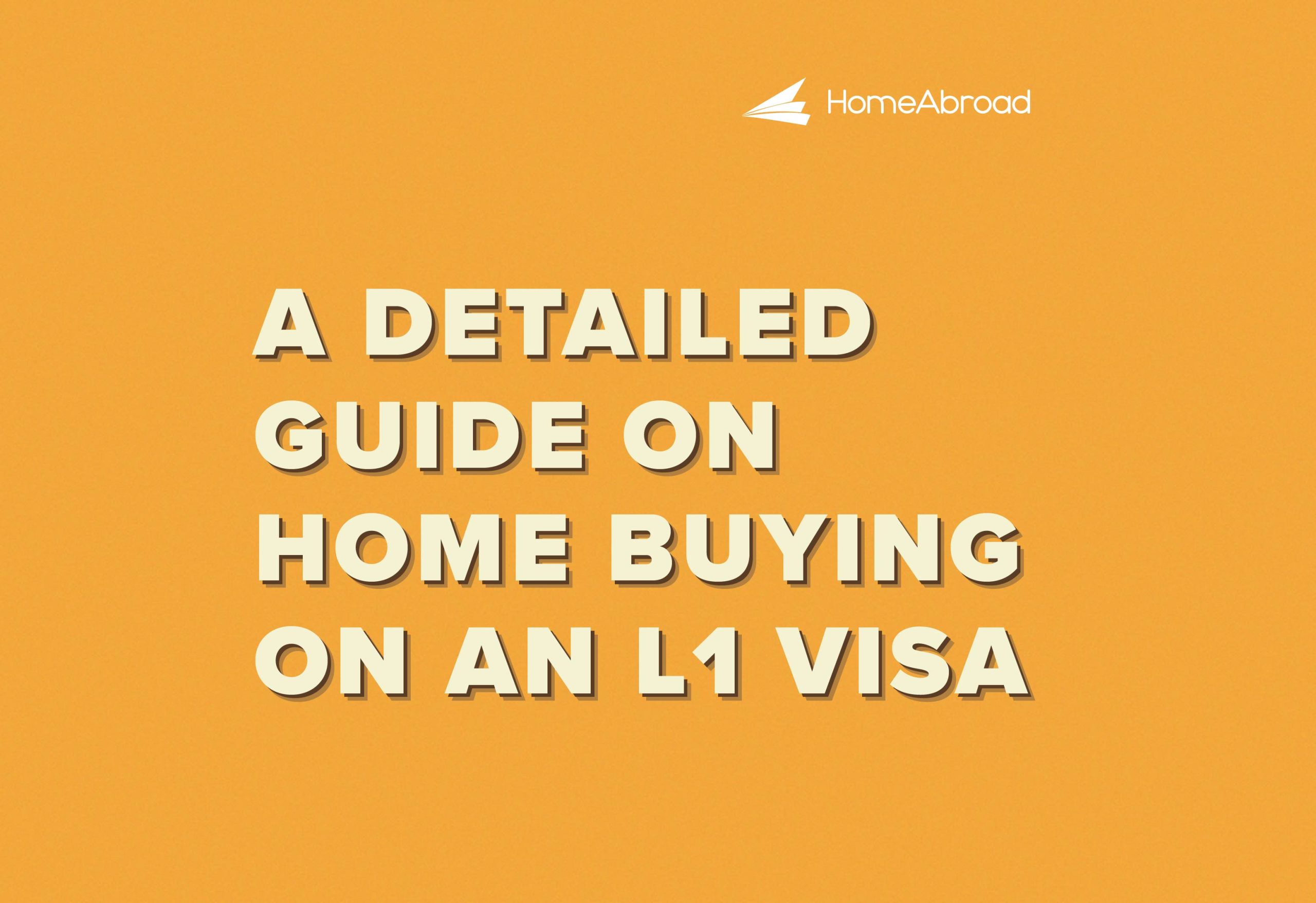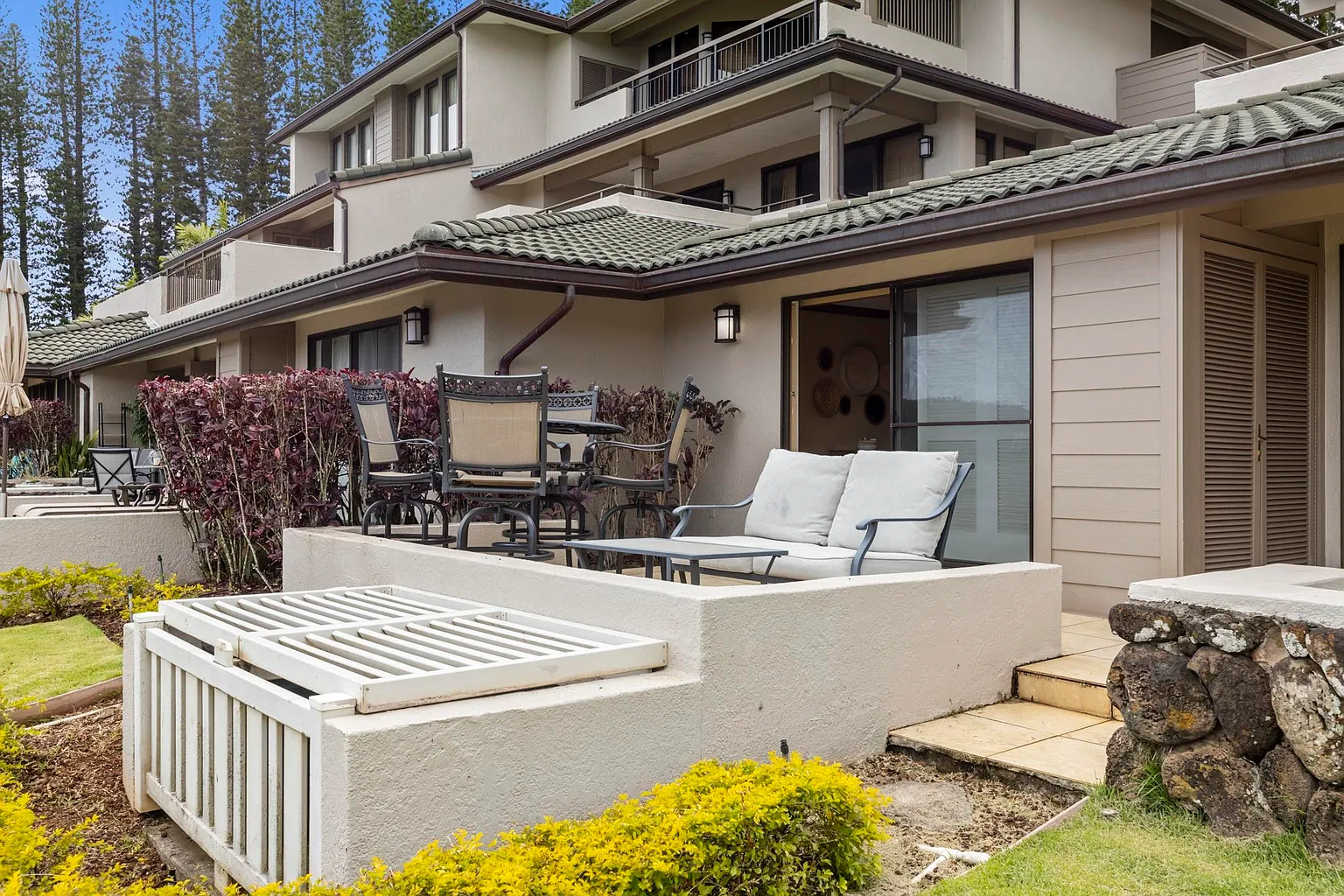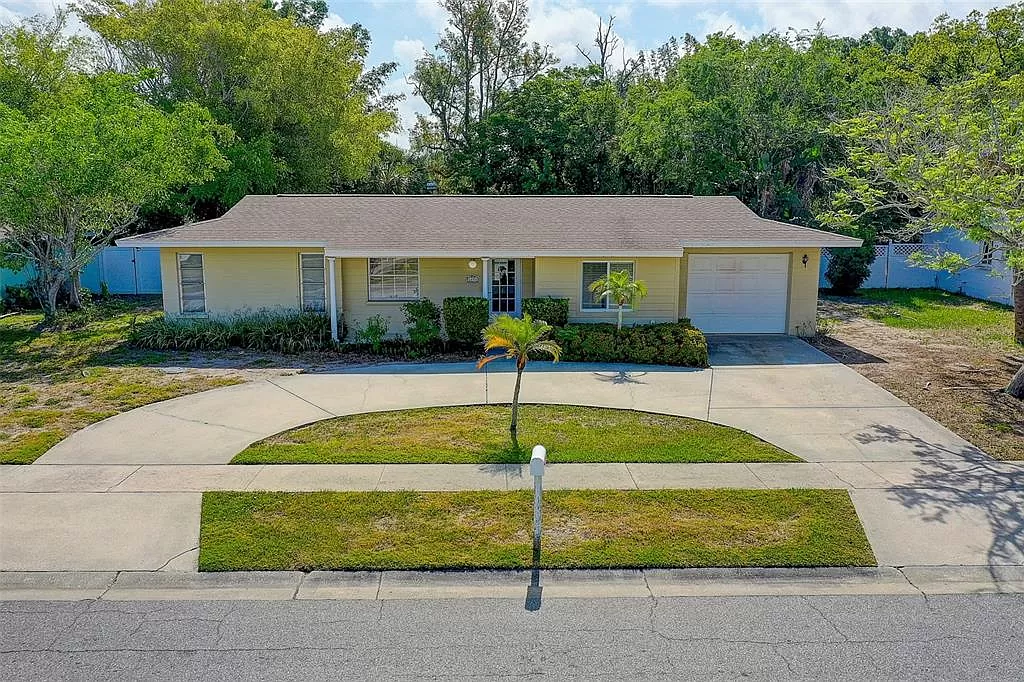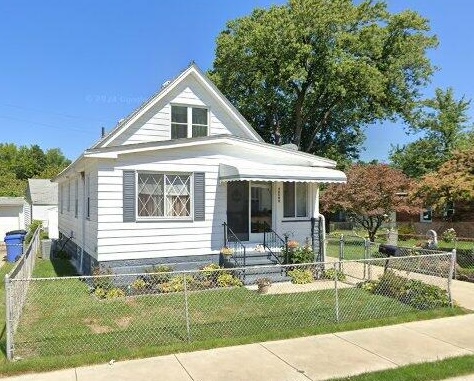Editorial Integrity
Making informed real estate decisions starts with having the right knowledge. At HomeAbroad, we offer US mortgage products for foreign nationals & investors and have a network of 500+ expert HomeAbroad real estate agents to provide the expertise you need. Our content is written by licensed mortgage experts and seasoned real estate agents who share insights from their experience, helping thousands like you. Our strict editorial process ensures you receive reliable and accurate information.
Key Takeaways:
1. J-1 visa holders can qualify for a mortgage in the US with the right documents and work authorization, even without a green card or US credit history.
2. At HomeAbroad, we offer tailored mortgage solutions for J-1 visa holders without an established US credit history, ensuring a smooth and hassle-free home-buying experience.
3. J-1 visa holders can also buy investment properties through DSCR loans, where qualification is based on the property's rental income.
What if your visa status didn’t define your ability to own a home in the US?
Meet Lisa, a researcher on a J1 visa with a dream of owning her first home in the US. Like many others in her position, she wondered if it was even possible to buy a house without a US credit history. The truth is that lenders do allow J-1 borrowers to purchase homes, but the approval process depends heavily on documentation, work authorization, and how long you have been in the country.
That’s where HomeAbroad comes in. With tailored mortgage solutions designed for non-US citizens, we help turn challenges into opportunities, making homeownership possible even without a US credit history.
Ready to explore how J1 visa holders can make homeownership a reality? Let’s dive deeper into the possibilities!
Table of Contents
Why Getting a Mortgage on a J-1 Visa Can Be Difficult
J-1 borrowers often face challenges such as:
Traditional banks rely on strict credit and income guidelines that many J-1 visa holders do not meet. HomeAbroad provides solutions designed for applicants with global financial backgrounds and non-standard documentation.
Mortgages for J1 Visa Holders with No or Thin US Credit History
If you’re in the US on a J-1 visa, you might assume that a lengthy credit history is necessary to secure a mortgage. Fortunately, that’s not the case.
HomeAbroad offers mortgage solutions for foreign nationals, tailored explicitly for J-1 visa holders, enabling them to purchase a home even with limited or no US credit history. These loan programs offer competitive interest rates, making homeownership accessible for international real estate investors.
What sets these loans apart is their flexibility. We consider your international credit report and employment history instead of requiring a US credit score. This approach simplifies the process, enabling J1 professionals to secure housing without waiting years to establish a credit history.
With years of experience and a deep understanding of visa-specific financing challenges, HomeAbroad provides tailored mortgage solutions that simplify your homeownership journey, making it easier for J1 visa holders to secure a home in the US.
Ready to take the next step? Get a rate quote today!

Pre-qualify for a US mortgage as an international buyer.
No US credit history needed.
Mortgage Options for J1 Visa Holders with Established US Credit History
For J-1 visa holders with a solid US credit history, you can explore FHA loans and conventional mortgages, each offering benefits suited to different financial goals and homeownership plans.
1. Conventional Mortgage
A conventional mortgage is a home loan offered by banks and lenders that offers competitive interest rates and flexible terms for J-1 visa holders with a strong credit score. You need a solid credit history, steady employment, and proof of income, residency, and financial assets to qualify.
Eligibility Requirements:
- Valid J-1 visa with work authorization (EAD/I-94 as applicable)
- Social Security Number (SSN)
- Established US credit history (typically 620+ credit score)
- Steady employment and proof of income
- Down payment (generally 3%–20%)
- Documentation of residency and financial assets
- Must occupy the property as a primary residence (investment properties may require alternative loan types such as DSCR)
- Non-citizen borrowers must provide documentation of lawful residency and work authorization from USCIS (per lender requirements)
Conventional mortgages allow for fixed and adjustable-rate options, and you can choose from loan terms typically ranging from 8 to 30 years. Private Mortgage Insurance (PMI) applies if you put less than 20% down. You can qualify for conventional financing if you meet the following requirements.
Note: FHA (Federal Housing Administration) loans were previously a popular option for visa holders, as they are government-backed mortgages known for their lower credit score and down payment requirements, making them a popular choice for first-time homebuyers.
However, as of May 25, 2025, FHA-insured loans are no longer available to non-permanent residents, including J-1 visa holders. FHA loans now only apply to:
1. US citizens
2. Lawful permanent residents (green card holders)
3. Citizens of Micronesia, the Marshall Islands, or Palau
4. Temporary visa holders, including J-1, H-1B, F-1, O-1, and DACA recipients, are no longer eligible under HUD Mortgagee Letter 2025-09.
5. This change was made due to HUD’s concern over the uncertainty of visa holders’ long-term residency status.
But even if you don’t have a US credit history, HomeAbroad has covered you with mortgage options tailored for non-permanent residents.
Investment Property Loan (DSCR Loan) for J1 Visa Holders
For many J1 visa holders, the primary focus when moving to the US is settling into their new environment and securing a place to live. However, what many don’t realize is that real estate investment is also within reach even without a long credit history.
As a J1 visa holder, securing a place to live is often the priority. But what if instead of buying a primary residence, you could invest in rental properties and start building wealth through US real estate?
This is where the Debt Service Coverage Ratio (DSCR) loan comes in. It is a great financing option that allows non-US citizens, including J-1 visa holders, to invest in income-generating properties without relying on personal income for qualification.
I recently worked with a J1 visa holder who had substantial savings but continued to face roadblocks with traditional lenders due to a lack of a US credit history. I helped him secure our DSCR loan, based on the property’s rental income, which allowed him to purchase a high-yield rental and start building wealth in the US.
How a DSCR Loan Benefits J1 Visa Holders
Traditional mortgage loans typically require proof of personal income verification and a debt-to-income (DTI) ratio, which can be a barrier for many J-1 visa holders. DSCR loans, on the other hand, focus on the rental income potential of the property rather than your individual salary or employment history.
This means:
Unlike FHA loans, which heavily depend on personal income and employment, DSCR loans prioritize the property’s rental income potential, making them an attractive financing option for J1 visa holders looking to enter the US real estate market.
DSCR Loans Documents Requirement for J1 Visa Holders
If you’re ready to explore investment opportunities, DSCR loans could be your gateway to passive income and long-term wealth-building in the US.
Our tailored mortgage solutions have helped many foreign nationals achieve their homeownership goals. Lisa’s story is an excellent example of how, with proper guidance and the right mortgage options, success can be achieved.
Case Study: How Lisa Secured Her Dream Home on a J1 visa
Lisa, a researcher from Spain, arrived in the US on a J-1 visa to participate in an academic program. She dreamed of purchasing her first home but faced hurdles common among many J-1 visa holders, including a lack of a US credit history.
That’s when she turned to HomeAbroad, known for its expertise in helping foreign nationals achieve real estate goals in the US.
With HomeAbroad’s AI-driven investment property search platform, Lisa found the perfect house. This allowed her to live in one unit while renting out the other, a strategy that helped her cover her mortgage and even generate positive cash flow.
Steven Glick, Director of Mortgage Sales at HomeAbroad, worked closely with Lisa to ensure a seamless, stress-free mortgage application process.
Here’s a quick snapshot of Lisa’s home purchase:
The rental income not only covered her mortgage payments but also generated positive cash flow, allowing her to focus on her career and settle into her new home.
Lisa’s story highlights the expertise and commitment of HomeAbroad in providing solutions that empower foreign nationals like her to achieve their homeownership dreams.
With the proper support and guidance, challenges that once seemed impossible became opportunities for success.
Quick Steps to Get a Mortgage on a J1 Visa with HomeAbroad
For J1 visa holders, securing a Foreign National Mortgage is possible, and with HomeAbroad, it’s even simpler. Our streamlined process ensures you can achieve your dream of homeownership in the US without unnecessary hurdles.
Here’s how you can make it happen:
Step 1 – Get Started with HomeAbroad
Step 2 – Connect with a HomeAbroad Mortgage Officer
Step 3 – Get Preapproval
Step 4 – Gather Your Documents
Step 5 – Make an Offer on Your Dream Home
Step 6 – Lock in Your Interest Rate
Step 7 – Underwriting & Appraisal
Step 8 – Closing
You can also refer to How to Get a Foreign National Mortgage for a detailed step-by-step process of securing a mortgage as a J1 visa holder.
Whether you’re looking to purchase your first home or make an investment, HomeAbroad is here to guide you every step of the way from mortgage approval to closing. Let us help you turn your dream of homeownership into a reality.
Get Your Dream Home in the US as a J1 Visa Holder with HomeAbroad
Owning a home in the US as a J-1 visa holder is achievable. With the proper guidance and support, your dream of homeownership can become a reality.
At HomeAbroad, we specialize in simplifying the mortgage journey for foreign nationals. Our trusted network of over 500+ expert real estate agents and tailored mortgage options for J1 visa holders make it easier to overcome traditional financing barriers and secure financing.
Additionally, with our AI-driven investment property search platform, you can easily find the best homes that match your budget and investment goals, ensuring a seamless and hassle-free homebuying experience.
Beyond financing and property search, our concierge services handle every detail, from LLC setup and insurance to US bank account opening and property management, so international real estate buyers and temporary visa holders can focus on their investment goals with confidence.
Apply and get pre-approved for a J1 visa mortgage with HomeAbroad today.

Pre-qualify for a US mortgage as an international buyer.
No US credit history needed.
FAQs
Can I purchase a house on a J-1 visa?
Yes, as a J1 visa holder, you can buy a home in the US. With HomeAbroad’s guidance and tailored mortgage options, you can make homeownership a reality, even without a US credit history.
How long does it take to close a mortgage as a J1 visa holder?
At HomeAbroad, our expert team ensures a smooth and efficient process. We aim to close your mortgage within 30 days and provide personalized support at every step of the journey.
Can I buy an investment property on a J1 visa?
Yes, J1 visa holders can purchase investment properties in the US. Mortgage options like DSCR loans are ideal for investment properties, as they focus on the property’s rental income potential rather than your personal financial profile.




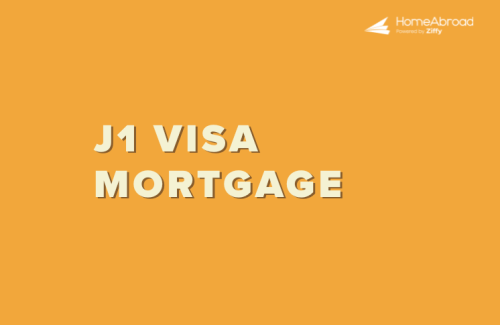





![How to Buy a House on an H1B Visa [2026]](https://homeabroadinc.com/wp-content/uploads/2021/08/BuyingonH1BVisa-scaled.jpg)
